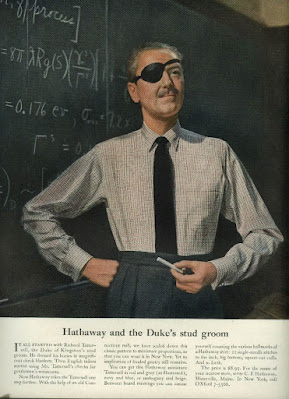In the early part of my career, apprenticeships were quite trendy. You simply had to find one if you wanted to achieve success in the working world. Blacksmiths were always letting people study their anvils before hammering things out on their own. But who ever heard of a natural born alchemist? The very idea of prodigies is a myth. Even Mozart’s father was in the music business. Many industries, understanding the importance of keeping the gates secure, began investing in the development of trade schools.
You probably don’t realize that La Cosa Nostra created Mob Schools in the late 60s to combat pressure from law enforcement. You can’t become a mobster by dint of desire, deciding that one day your collection of adidas track suits and gold chains is befitting a lifetime of lounging on the corner of Mulberry and Spring with a cooler of stuffed peppers and half-melted Italian ices. No one exits the womb with an adult understanding of extortion or racketeering. Bribes are great in theory, but without a grasp of economics you’ll never make it out on the street. There's a craft to what they do. A shakedown may appear simple from afar, but it's only the result of years committed to formal education.
Mobsters realized that part of what made their criminal enterprises different from their rivals was an affinity for organization and bureaucracy. By creating tiers of knowledge, they made it so no one could claim membership into the group without getting an accreditation first. You had to be made. L. Ron Hubbard would later borrow much of their institutional structure for his own thing. But that’s a story for another epoch.
Without Mob School, members wouldn’t appreciate the subtle, stark differences between wooden and metal baseball bats. How to leave the car running during a job and when it’s acceptable to casually quote movies. You don’t want to be confused when the stakes are this high. Mob School is very expensive, too. So being able to procure the necessary funds is part of the screening process. Did it matter that the mafia had been doing well for decades without the introduction of higher learning? Perhaps. But in the end, it should be harder to join, not easier.
When examining the careers of David Ogilvy, Bill Bernbach, and Lee Clow, there’s one glaring thing that they all have in common. None of them went to Ad School. And it shows in their work. I mean, really - a man in an eye patch? What is that? If you're planning on going down this plank, it's safer to go full pirate. Peg leg, parrot, doubloon, all must be considered. Ad school would've taught Sr. David the error of his ways. And then his parrot would've reiterated the point in a more forcefully. What advertising needs are not individuals but facsimiles, corrugated creatives rendered from manufactured ideation. Before you dive in, spending twenty-grand on what that means is your best bet.

No comments:
Post a Comment